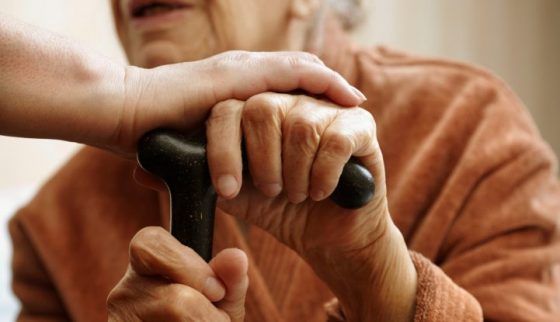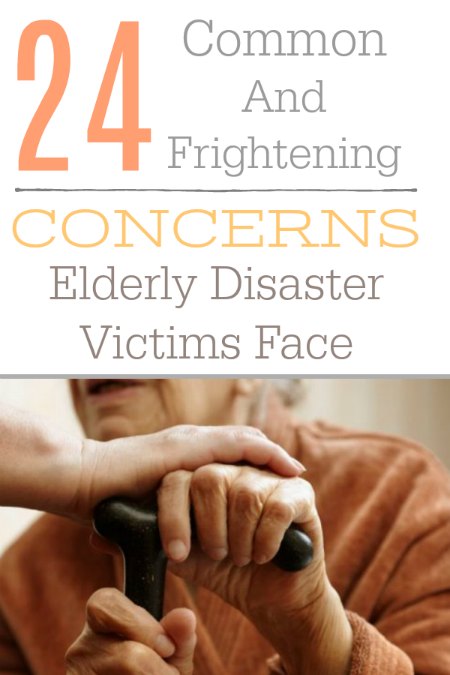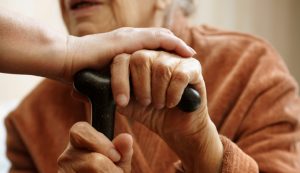
The elderly are a part of the population that is the most vulnerable during times of evacuation and emergency. They face many concerns both before a disaster strikes and immediately afterward.
The need to protect the elderly during a disaster is not going unnoticed either. “These catastrophic events have taught us we have to pay greater attention to evacuating, identifying, and ensuring the safe return of the thousands of frail older adults living on their own or in care facilities,” said AARP CEO William D. Novelli. “Much of the suffering and loss was undoubtedly preventable, and it must not be allowed to happen again,” Novelli said in a report which was written in response to photos of the elderly suffering in 2005 after Hurricane Katrina [1].
The statistics speak for themselves. In Louisiana in the aftermath of Hurricane Katrina, roughly 71 percent of the victims were older than age 60, and 47 percent of those were over the age of 75. Most of these victims died in their homes and communities; at least 68—some of whom were allegedly abandoned by their caretakers—were found in nursing homes. About 15 percent of Americans who are aged 50 or older say they would not be able to evacuate from their homes without assistance in the event of a natural disaster; of that 15 percent, half would require help from someone outside the household.
As a whole, 81 percent of Americans age 50 or older say they are “confident” or “very confident” in their ability to evacuate; however, 14 percent are only “somewhat confident,” and 3 percent are “not at all confident.” Those who are age 75 or older more frequently said they would need help evacuating [1] (25 percent versus 13 percent of persons age 50–74). They are also less confident in their ability to evacuate than are their younger counterparts.
These are the 24 most common concerns the elderly face in times of disaster and emergency. Please bear in mind, not all of these may apply to your loved one specifically, but if any do, consider taking measures in your personal prepping planning to accommodate older family members if you can.
24 Problems the Elderly Face
PART 1: Medical Conditions
-
- Many have chronic illnesses. The great majority of Medicare beneficiaries age 65 and older experience two or more chronic conditions at the same time. For example, the prevalence of arthritis increases with age [2]. Arthritis makes it rather difficult to move quickly when leaving homes or workplaces or to stand in line for lengthy periods of time, let alone carry anything. Chronic illnesses can increase the risk of pneumonia 40-150 times. Not to mention, sleeping on a cold, hard, damp surface (which isn’t fun for anyone, let alone the elderly) or getting up from low cots or mattresses on the floor can exacerbate chronic health problems.
- Many have a low level of immune function and therefore, an increased risk of infectious diseases, which is a big concern at a disaster shelter or FEMA camp where these infections [3]can reign supreme.
- Most also take prescription medications. Fifty-one percent of persons age 65 and older take three or more prescription drugs per month. Changes in medications can result in a host of serious consequences, ranging from confusion to falling to dangerous changes in blood pressure. Many older persons who have multiple chronic conditions have complicated, individualized medication regimens that cannot be interrupted without serious, possibly fatal, complications.
- Many are “frail.” Medical researchers [4]and others now recognize that frailty is a syndrome that is distinct from both the normal aging process and disability. Key characteristics of frailty include unintentional weight loss, muscle weakness, slow walking speed, exhaustion, and low physical activity. It is estimated that about 20 percent of persons age 80 or older are frail, aside from any acute and chronic conditions they may have.
- Some also have difficulties with physical functioning, such as being able to walk two or three blocks or reach up over one’s head. In 2002, 31 percent of women 65 and older reported being unable to perform at least one of five physical activities.
- Others use some type of assistive equipment, such as canes, wheelchairs, walkers, or medical equipment, such as oxygen.
- Sensory impairments are also common among older adults. Close to half of men age 65 and older and nearly one-third of women reported trouble hearing in 2002. In addition, vision difficulties affect 18 percent of the older population.
- They can have memory impairments, especially at advanced ages. Fifteen percent of men and 11 percent of women age 65 [5]and older experienced moderate or severe memory impairment in 2002; at age 85, about one-third of both men and women experience moderate or severe memory impairment. Persons with cognitive impairments may need help in understanding the severity of the risk and in making timely decisions.
- Some have distinct mental health needs; for example, the rate of suicide deaths is much higher for older white men than for any other age group, including teenagers.
- The elderly experience hypothermia or hyperthermia must more quickly than an average adult.
PART 2: Sociodemographic Characteristics
-
- The elderly have lower literacy levels than the general adult population, which can present difficulties in understanding directions and can complicate or slow communications for everyone.
- They may not speak English if they are immigrants age 65 and older and may need the help of a translator or bilingual family member.
- Some live alone. As age increases and widowhood rates rise, the percentage of the population living alone increases sharply. Half of the people age 85 or older lived alone in 2002.
- Those that live in rural or remote areas, especially over the age of 75 may experience prolonged isolation after flooding or other disasters.
- Many are unable to drive, which makes an evacuation more difficult.
- Many rely on the help of informal caregivers, such as family and friends, for assistance with the tasks of daily living. More than 90 percent of persons 65 and older with disabilities who receive assistance receive informal care; nearly two-thirds rely solely on informal caregivers.
Part 3: PSYCHOSOCIAL CHARACTERISTICS
-
- Some of the elderly can be reluctant to accept any public assistance; sometimes it’s because of the perceived stigma and the belief that if they accept assistance, someone else who may need it more will have to go without it.
- Many are dependent on others for financial assistance.
- Some may fear the loss of their independence or being institutionalized, which may affect their behavior.
- They could experience “transfer trauma” that can result in illness [6] or even death after being moved from nursing homes. Also, some older persons may regard the need to rebuild homes and life patterns or undertake complex procedures for applying for aid, as too formidable, leading to inaction and potential depression.
- The elderly sometimes experience multiple losses in short spans of time (e.g., spouse, friends, home, income, physical abilities), whose cumulative effect can heighten the risk of illness or death and make recovery more difficult.
- They can be “invisible” to relief workers or emergency personnel. Relief organizations often fail to see or understand the needs and contributions of older people during disasters. The research has identified an almost universal lack of consultation.
- Older people fight a losing battle in the competition for resources. In the chaos of emergencies, older people are physically less able to struggle for food or to travel far to find what they need. Many have spoken of using valuable energy to reach central relief points [1]only to arrive too late and find little or nothing left.
- They are targeted by con artists and fraudulent contractors who seek to financially exploit victims after a disaster.
All of these concerns should be kept in mind especially if you’ve got an older family member who will need your help in the event a disaster strikes. Use these concerns as a guide so your loved one isn’t left on their own.

